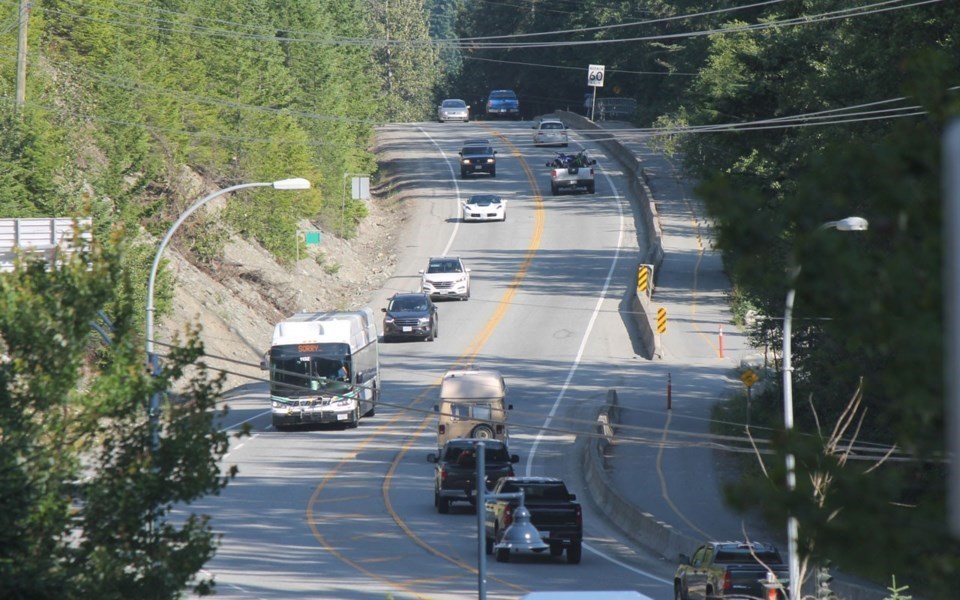The Sea to Sky can breathe a collective sigh of relief with the news that the longest transit strike in B.C. history has officially come to an end—but as of June 15, there was still no word on when buses will be back on the road.
Both Pacific Western Transportation (PWT) and Unifor Local 114 agreed this week to accept the settlement package recommended by a special mediator, signalling an end to the transit shutdown on June 14, its 137th day.
“We’ve missed transit in this community. The damage has been significant and I’m excited to get to work rebuilding a piece of infrastructure that is fundamental to the success of this town,” said Mayor Jack Crompton following the news.
There’s still no date set for when transit service will resume, although BC Transit said in a statement Tuesday that it continues to work with its contractor, PWT, on a safe return and will “update everyone as soon as possible.” The Crown corporation went on to say it is working with its local government partners on a promotion to welcome riders back onboard, with more details to come. Crompton also noted officials will be considering options at next Tuesday’s council meeting to incentivize ridership and return service to its previous levels.
Special mediator Vince Ready, a heavy hitter in Canadian labour circles who has handled thousands of labour and commercial disputes across the country, was appointed late last month in a rare move by the labour ministry to resolve the bitter dispute. The two sides had up to 10 days of talks to reach a mediated settlement, after which each party had five days to either accept or reject the deal.
Ultimately, the impasse came down to two opposing positions: the union wanted wage parity with Vancouver transit workers, while the employer refused to throw new money on the table, instead sweetening the pot through other means, like signing bonuses and extended benefits.
The five-year collective agreement, retroactive to April 2020, includes annual wage increases of 1.5, two, three, three, and four per cent, for a total 13.5-per-cent increase over the term, plus a two-per-cent signing bonus for 2022. Pensions will migrate from an employer RRSP top-up to a CAAT pension plan. Full benefit coverage will also be extended to part-time workers, who were previously ineligible.
In the end, local workers still haven’t achieved parity with their Vancouver counterparts—although they do meet or exceed wages for transit operators in many locales, including Prince George, Port Alberni, Comox, Campbell River, Kelowna and Kamloops. It’s also worth noting the deal that was accepted by both sides this week doesn’t differ much from the earlier offer rejected by Unifor members May 30 in a narrow 36-32 vote. (Seventy-two per cent of members voted to ratify the latest deal, Unifor said—although the union was not obligated to put the deal to a vote.)
In his analysis, Ready said he found “no compelling reason to alter the wage increases and signing bonus” from the previous offer because “wage rates … meet and exceed wages paid to transit drivers covered under collective agreements with competitor employers.”
In a statement, PWT said it “agrees with Ready’s statement in the recommendations that it is ‘a daunting task’ to resolve a dispute following the rejection of a mutually agreed and acceptable tentative agreement because the parties are ‘at the point when they have already exhausted all available compromises.’”
So what was the difference-maker? A cost-of-living adjustment based on B.C.’s monthly consumer price index (CPI). If the CPI increase exceeds the average annual wage increase negotiated for 2021 to 2024, PWT will add the difference to the existing four-per-cent wage hike slated for the final year of the deal, effective April 1, 2024.
Linking wage increases to CPI was a “key factor” in Tuesday’s union vote, and one that other Whistler workers should take note of, argued Unifor’s western regional director, Gavin McGarrigle.
“This clause is the type that will be taken to every single hotel bargaining agreement we’ll be doing in Whistler. We’ll be taking this out for other bargaining in transit in other contractor places,” he said. “It’s a reasonable solution by a seasoned mediator to irrefutable cost-of-living concerns. I think that holds a lot of power at a bargaining table.”
B.C.’s previous longest transit strike was in 2001, when the Liberal government of the day mandated buses back on the road in Metro Vancouver after 123 days.
Stay up to date with local transit updates at bctransit.com/whistler.



